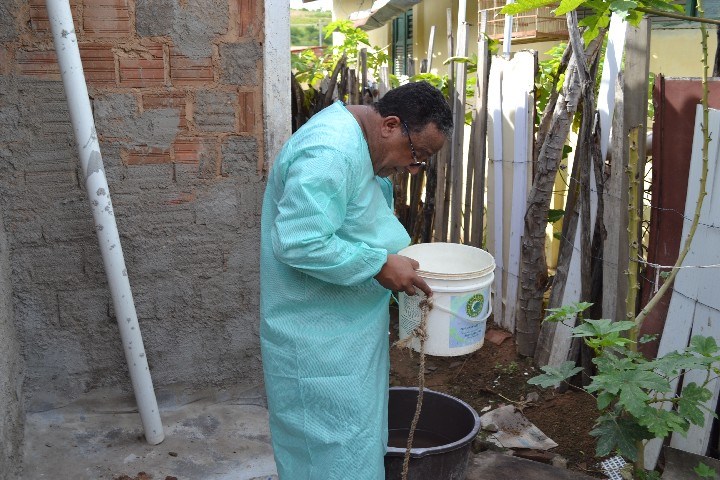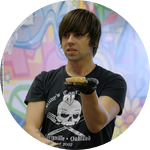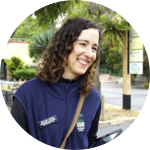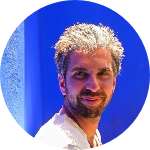Project Results
Development and evaluation of a rapid molecular diagnostic test for Zika virus infection by reverse transcription loop-mediated isothermal amplifcation
Yohei Kurosaki, Danyelly Bruneska Gondim Martins, Mayuko Kimura, Andriu dos Santos Catena, Maria Amélia Carlos Souto Maior Borba, Sandra da Silva Mattos, Haruka Abe, Rokusuke Yoshikawa, José Luiz de Lima Filho, and Jiro Yasuda
About This Project
Zika (PORTUGUESE) is a rapidly emerging pandemic, a global health emergency. ZIKV has been associated with central nervous system malformations in babies alongside neurological and immune complications in adults. There is a shortage of labs offering ZIKV testing in Brazil and worldwide. We are developing a new diagnostic assay that identifies the presence of ZIKV and other viruses. The goal is an easy, rapid, economical, local & reliable test without the need of a lab or highly trained personnel
Ask the Scientists
Join The DiscussionWhat is the context of this research?
The current situation in Brazil and Latin America urgently requires an easy to use robust, affordable diagnostic test for the detection of Zika virus. Current estimation for number of infections are over 1.5 million and rapidly rising.
There is a correlation between Zika virus infection, microcephaly(abnormal smallness of the head associated with incomplete brain development) and Guillain-Barre syndrome a rapid-onset muscle weakness, where the immune system damages the peripheral nervous system. However current diagnostic status is underdeveloped as the gold standard is a RT-PCR test that is unavailable in most clinics due to cost, shortage of trained personnel and equipment. The urgent need for new diagnostics that are scalable, accurate and accessible was described on WHO SRF (Feb 2016).
What is the significance of this project?
Currently diagnosis can only be confirmed by slow, expensive and relatively rare laboratory testing for the presence of the ZIKV genome in the blood or other body fluids, such as urine or saliva. There is a problem of cross reactivity with other viruses in some lab tests, making it hard to identify Zika vs Dengue.
Patients with other viral infections including Dengue and Chikungunya are proposed to increase the likelihood of microcephaly and neurological complications. We have designed our assay to be able to differentiate and test for all of these viruses simultaneously. This makes our tool perfect for helping doctors and epidemiologists better understand, disentangle and identify the true cause of ZIKV's freightening complications.
What are the goals of the project?
We have already started to rapidly develop, optimize and verify a specific and sensitive ZIKV test based on isothermal genomic RNA amplification (Wang et al.) from minimally treated samples (heated), without the need for a lab, complex equipment, or highly trained personnel. It will be able to distinguish between closely related viruses, in less than 60 minutes from sample extraction, and results easily seen.
We will first validate and optimize our primer set, using purified Zika genomes, also checking other co-circulating viruses, human and mosquito DNA. We will then test on ZIKV grown in the lab. Finally we will test on real samples of humans and mosquitoes, which we have access to at the LIKA lab in Brazil.
Once we validate >300 samples we will release the kit on an open website
Budget
We have already done the in-silico(computational) work, analyzing over 40 recently sequenced ZIKV variants from the Americas, and have designed multiple isothermal primer sets for different unique regions of the ZIKV genome, taking into account recent mutations, relatedness to other viruses and the human genome. We are ready to order and try them out, just need your help!
In order to optimize our assay and make sure it can work even in low income settings we need to use multiple primer sets in many parallel experiments in different conditions, concentrations of virus and enzymes, pHs, temperatures, durations, using different visualization techniques and samples.
Reagents cost and availability are a rate limiting step for us, this funding will allow us to move faster.
We have a list of supplies needed in order to create and validate the diagnostic: specific short strands of DNA (primers), plastic micro-tubes\plates, heating element, gloves, plastic pipettes, enzymes, dyes, and buffers.
Endorsed by
Meet the Team
Affiliates
Affiliates
Affiliates
Team Bio
The UK-IL-BR team got together in a short time to solve a big problem. Supported by a major research center in Brazil and advised by Universities, Hospitals and Impact organizations around the world.
Gilad Gomé
Biotech entrepreneur focused on scalable solutions for humanity's greatest challenges.
I am passionate about creating enabling platforms for promoting novel solutions that solve problems where technology allows new opportunities for the creation of for-benefit enterprises.
Danyelly Bruneska Gondim Martins
Ever since I can remember, I am fascinated by science! The curiosity moves me towards different themes and experiences to improve the knowledge and share the good ideas with cool people. In this way, we can make the science get closer to the society and the most needed communities and help them to improve their quality of life!
Maria Amélia Borba
PHD Student at LIKA. Has some experience in molecular diagnosis and pharmacogenomics. In love with science 24 hours a day!
Henrique Castelletti
A science/computer geek focused to find patterns in genome.
I am a dreamer about data integration as a platform to share knowledge and forwarding the development of life quality.
Guy Aidelberg
Broad range multidisciplinary scientist from Weizmann Institute with expertise in: physics, biology, data science. Author of research papers in fields of microfluidics, systems biology and microbiology.
Alexander Kumar
Alex is a British medical doctor currently working as a NIHR Academic Clinical Fellow in Infectious Diseases based at University of Leicester in United Kingdom. He has lived, worked and travelled through 80+ countries and holds experience working in an Ebola Treatment Centre in Sierra Leone and recently completed DTM&H at London School of Hygiene and Tropical Medicine.
Jones Albuquerque
holds a PhD in Computer Science. He is currently Associate Professor at the Federal Rural University of Pernambuco, Director of Knowledge of Epitrack, Chief Scientist of Innovation Senai Institute in Information and Communication Technologies. He has experience in Mathematics-Computer Software Engineering and modeling applied to Public Health, specifically in computational epidemiology and computational modeling.
Additional Information
After initial validation, calibration and optimization, we will test the assay without using any lab equipment with our kit design. This will assure that the assay can be done anywhere in the world.
Once we validate >300 samples we will release the specifications of the kit to the WHO, PAHO, UNICEF and on an open access website
The Zika Virus is one example for many other viruses that will affect the world and our assay may be used on other emerging viruses with a rapid development process.
We are Located in the LIKA, Recife Brazil and working in the epicenter of the ZIKA virus spread in Pernambuco and Paraiba.
Our team includes Professors and researchers from LIKA, Physicians and infectious disease experts From UK and Scientists from Israel who all got together to innovate "on the ground" and delivering solutions ASAP that will help in solving the problem.
Your support will help us to help others.
Thank you
Obrigado
תודה
UK-BR-IL ZIKA Diagnostic mission - March 2016.
* The research is approved by the Ethical Committee. The samples and the clinical data are stored at LIKA.
* The team would like to thank Daniel Uribe and his family for all the help and inspiration.
Project Backers
- 273Backers
- 489%Funded
- $29,345Total Donations
- $70.86Average Donation


















